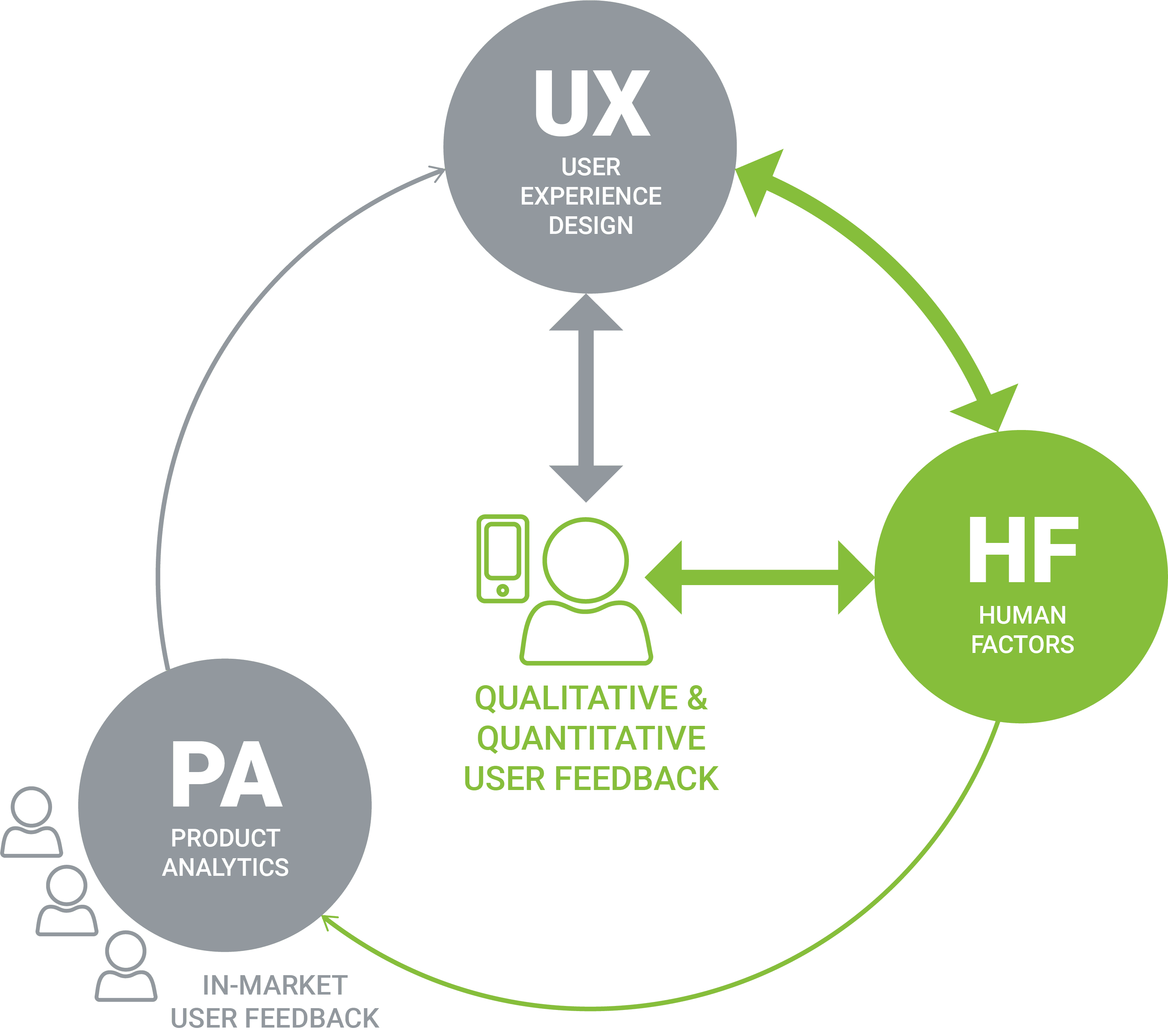Three User Thursdays
The power of small-scale testing.
Medical device industry guidance outlines the importance of “designing out” risks and flaws in Software as a Medical Device (SaMD), Digital Therapeutics (DTx) and connected medical device systems as opposed to relying only on labeling changes and additional training to solve problems. It is essential to catch issues early in the project timeline when they are inexpensive to fix. Orthogonal’s cadence-based user testing process is called Three User Thursdays. Our fast, informal testing methodology yields big returns, leading to the timely discovery and resolution of design issues.

Formal Testing
Summative tests you are ready for.
Small scale tests do not replace the need for larger and more formal formative and summative testing. By investing in small-size iterative tests early, you set yourself up for success when you undergo a large formative test or a required summative test. As you plan your summative test, it is necessary to include critical app functions and task flows. Evaluating those key items in small-scale iterative tests ahead of time will ensure your summative test is a success.

HF Best Practices
The following are some of our best practices for integrating Human Factors into a fast feedback style design process:
- Establish a testing cadence up front and ensure you have users to participate in the test.
- Keep track of items you would like to test in a backlog, and prioritize on an ongoing basis.
- Set up tests for all aspects of the design, including workflows, screen layouts and flows, supportive content and visual designs.
- Identify (and test) critical features and functions early on to set the stage for success in your larger formative and summative tests.
